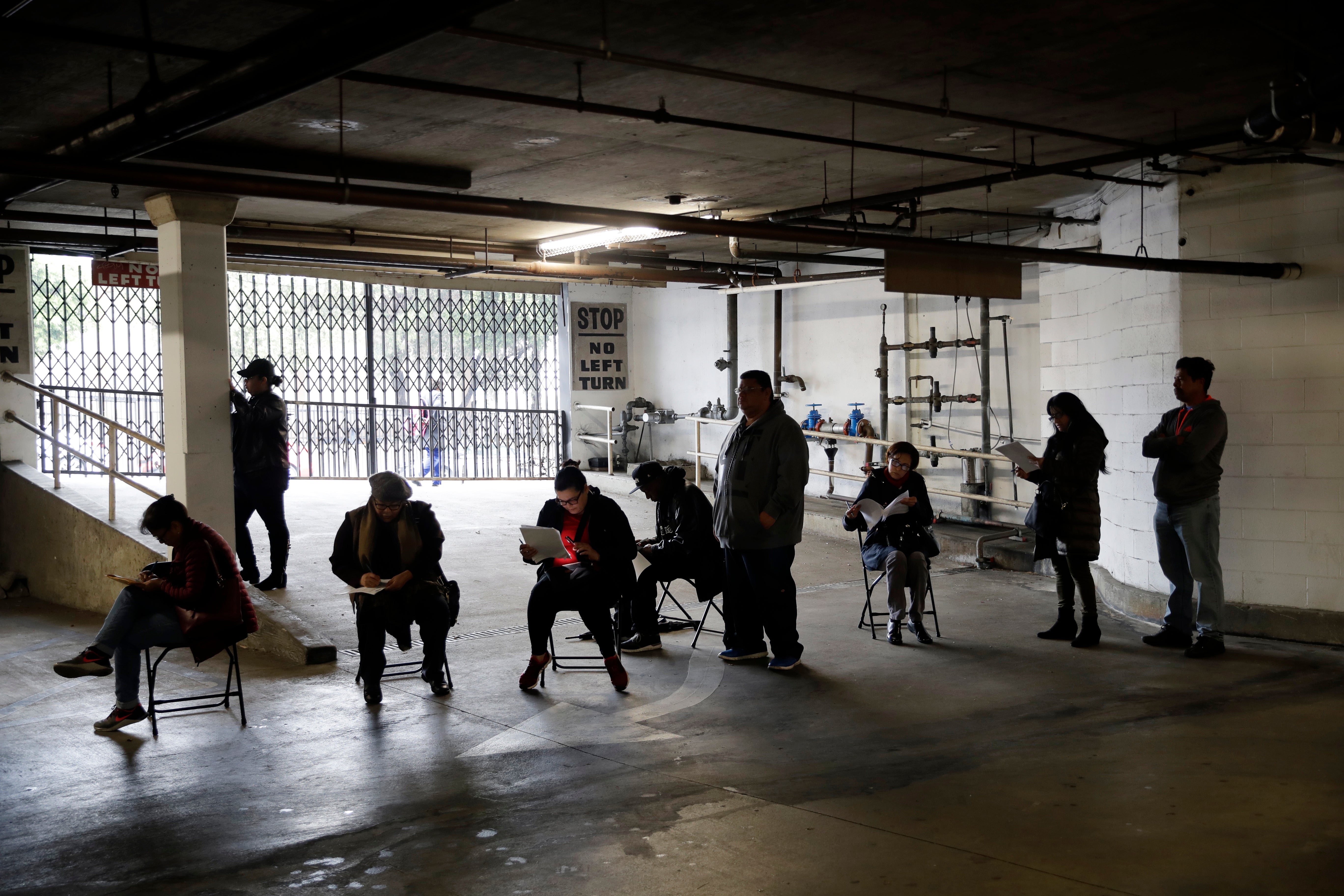White House warns of catastrophic recession if US defaults on debt
The White House says a default would cause a self-perpetuating crisis because the government couldn’t borrow money to help Americans deal with the resulting recession

Your support helps us to tell the story
From reproductive rights to climate change to Big Tech, The Independent is on the ground when the story is developing. Whether it's investigating the financials of Elon Musk's pro-Trump PAC or producing our latest documentary, 'The A Word', which shines a light on the American women fighting for reproductive rights, we know how important it is to parse out the facts from the messaging.
At such a critical moment in US history, we need reporters on the ground. Your donation allows us to keep sending journalists to speak to both sides of the story.
The Independent is trusted by Americans across the entire political spectrum. And unlike many other quality news outlets, we choose not to lock Americans out of our reporting and analysis with paywalls. We believe quality journalism should be available to everyone, paid for by those who can afford it.
Your support makes all the difference.The White House Council of Economic Advisers is warning that if the US government is allowed to default on its’ sovereign debt, it would trigger a recession comparable to the “Great Recession,” which occurred as a result of the 2008 financial crisis, and would leave the government unable to do anything about it.
An analysis by CEA economists published by the White House on Thursday shows that a failure by the government to pay its’ bills — even temporarily — would cause the US economy to “would quickly shift into reverse, with the depth of the losses a function of how long the breach lasted”.
“A protracted default would likely lead to severe damage to the economy, with job growth swinging from its current pace of robust gains to losses numbering in the millions,” the CEA said.
The report comes just days after Treasury Secretary Janet Yellen said the government could reach its statutory debt limit as soon as 1 June.
In a letter to House and Senate leaders, Ms Yellen urged Congress “to protect the full faith and credit of the United States by acting as soon as possible” to raise the statutory debt limit. That limit was first enacted more than a century ago to make it easier for the government to issue bonds without needing specific congressional authorisations each time it does so.
In recent years, Republicans have attempted to repeatedly weaponise the need to raise the debt limit periodically as a way to force Democratic presidents to adopt unpopular positions by threatening to allow the US to stop paying its bills.
Many Republicans, including former president Donald Trump, have demanded that the GOP use the possibility of a default on America’s soveriegn debt as leverage to extract concessions from the Democratic-controlled White House and Senate. The GOP-controlled House last week passed legislation that would raise the debt limit while at the same time cutting spending on various government programmes. Among the programmess on the chopping block: President Joe Biden’s student debt relief initiative, as well as funding for new IRS personnel.
Prominent GOP figures frequently claim that raising the statutory debt limit to enable the US to continue meeting financial obligations — a practice that was once routine under presidents of both parties and met no objections when it was done under Mr Biden’s predecessor — is akin to authorising new spending.
That claim, however, is not how the debt limit works. Raising the debt limit does not increase or decrease the amount of money that is spent on programmes that have already been authorised by Congress and have had funds allocated to them in appropriations legislation.
The CEA warned that allowing the US to default would create a self-perpetuating cris because the lack of borrowing ability would leave the government “unable to enact counter-cyclical measures in a breach-induced recession,” which means US officials would have “limited policy options to help buffer the impact on households and businesses”.
“The ability of households and businesses, especially small businesses, to borrow through the private sector to offset this economic pain would also be compromised. The risks engendered by the default would cause interest rates to skyrocket, including those on the financial instruments that households and businesses use—Treasury bonds, mortgages, and credit card interest rates,” the CEA said.
Mark Zandi the chief economist for Moody’s Analytics, said in Senate testimony this week that even a brief default would create a “crisis, characterized by spiking interest rates and plunging equity prices”.
A Moody’s analysis found that even a short-term default on US debt would cause 2 million Americans to lose jobs and raise the unemployment rate to nearly 5 per cent.
“If Treasury securities are no longer perceived as risk-free by global investors, future generations of Americans would pay a steep economic price,” the analysis said.
Join our commenting forum
Join thought-provoking conversations, follow other Independent readers and see their replies
Comments